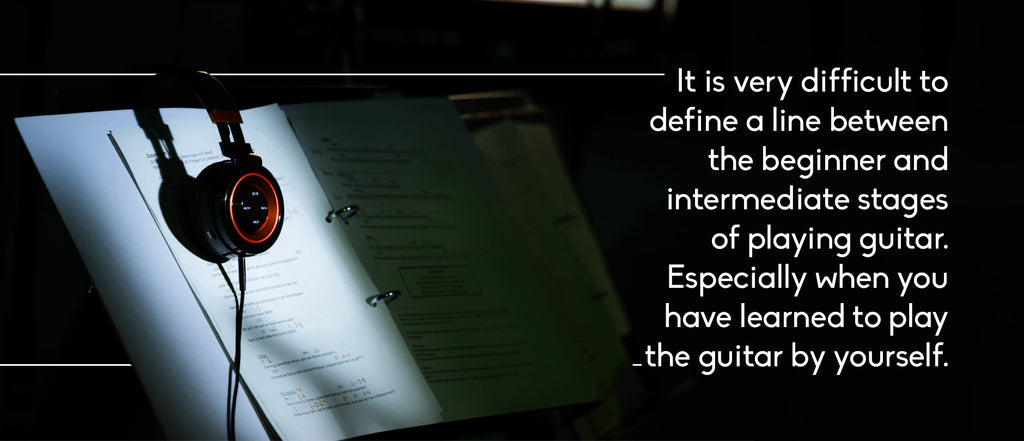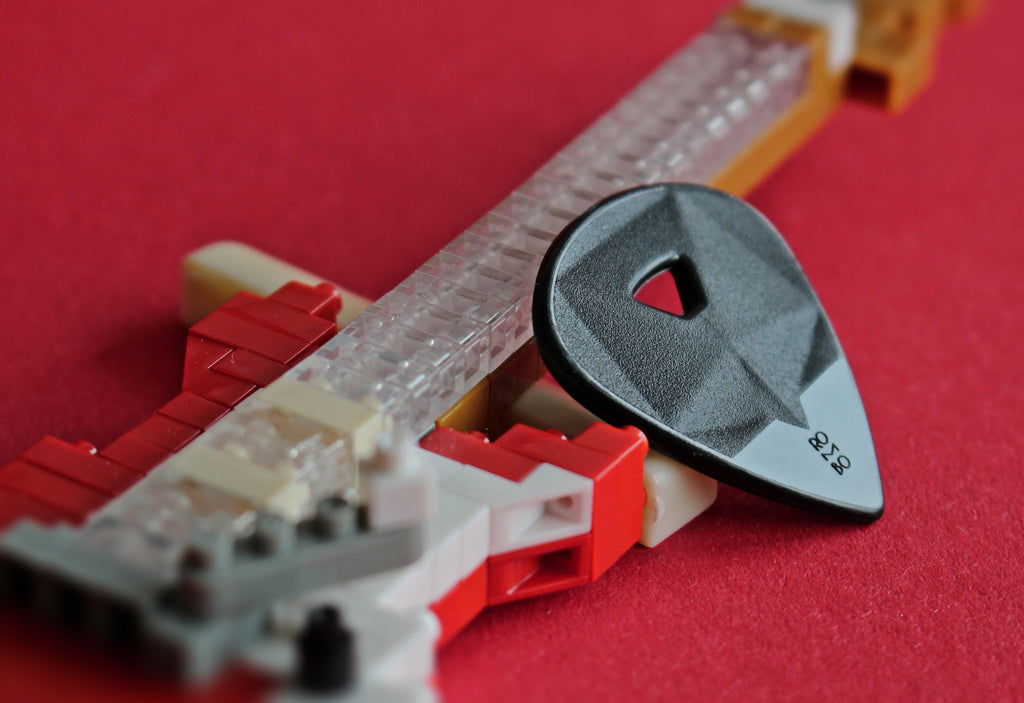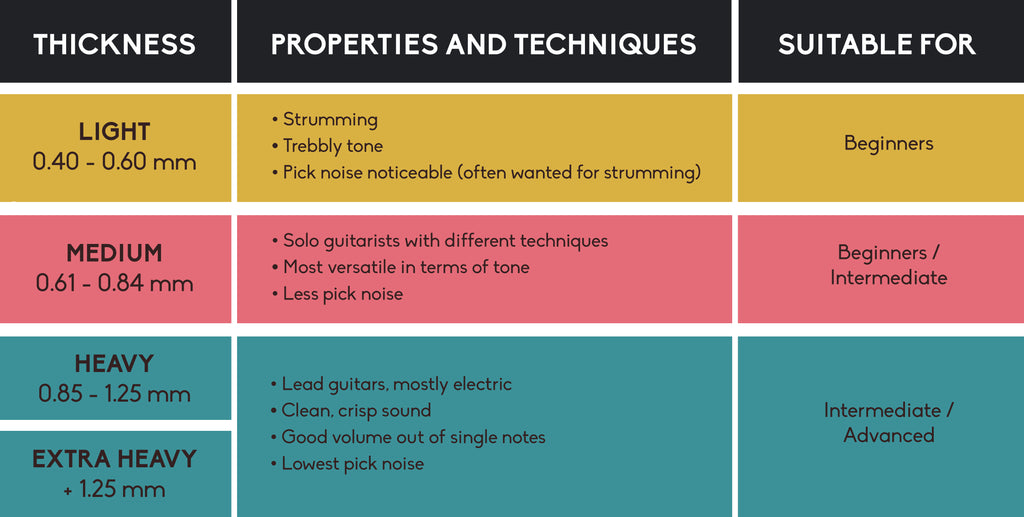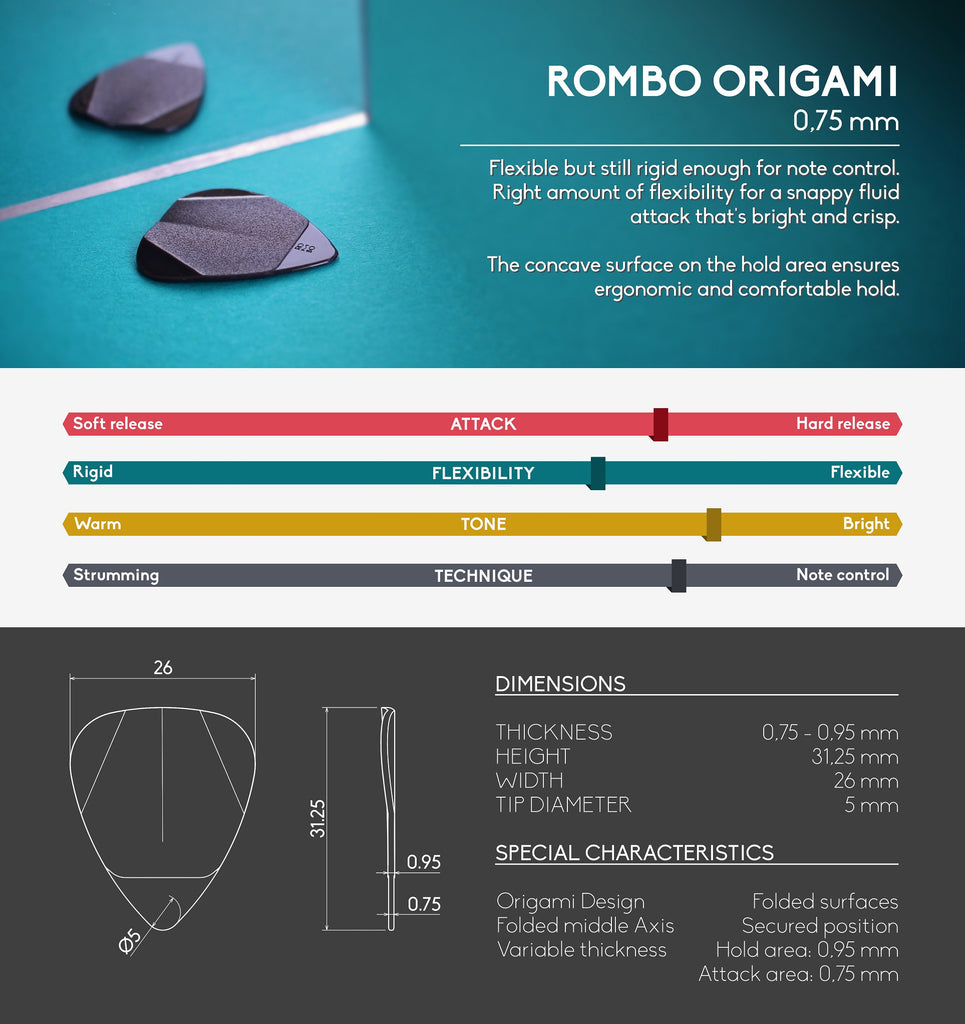Guitar picks are one of the most useful accessories for beginners, who have just started to play the guitar or bass.
Having a guitar pick won’t make you a professional guitar player faster, but will enhance the playability of your guitar.
With the right plectrums, you can easily learn new techniques and shape your skills.

The amount of guitar pick brands available on the market today is huge. This can be overwhelming if you are a beginner guitarist, and choosing the right guitar pick can be a tough process if you start in the wrong place.
But first of all: Who is considered a beginner guitar player?
A beginner guitar player could be someone who just started playing last week, or, someone who has been practicing guitar for 2 months.
It is very difficult to define a line between the beginner and intermediate stages of guitar playing. Especially when you have learned to play the guitar yourself.

In general, to be considered an intermediate player, you should know and master the following areas:

Guitar Picks have different advantages when comparing them with fingers.
Guitar picks help increase your playing speed, produce a louder, brighter sound than fingers, and can be shaped to achieve better results when using different techniques like strumming or palm mute.

In general, plectrum techniques are easier to master than classical fingerstyle, or hybrid. It is easier to play fast picked notes.
As a beginner, this is very motivating, since your process of learning will be accelerated.
At the very beginning of your guitar learning process, your feeling of sound and feedback provided by a guitar pick as not yet developed.
Therefore, you should consider only these two attributes of a guitar pick:
Simplifying the “science” of a guitar pick will help you make a fast choice without spending too much time and stress.
After your first couple of months playing guitar, you will develop new skills, which will allow you to introduce more complex factors to your final decision of which pick to buy, guitar pick material, guitar pick size, and other special features.
If you feel secure enough to understand these additional features of a plectrum, go to our guide: How to choose the right guitar pick, which you can find HERE.
For the thickness and the shape, here is where you should begin:
Light guitar picks with less than 0,6 mm are considered beginners’ guitar picks.
The reason for this, is that most beginner guitar players first learn strumming techniques, which can usually be played better with thinner plectrums.
However, medium guitar picks with 0,75 mm thickness are the best place to start.

Plectrums with medium thickness are the most versatile in terms of tone, and can be used for rhythm and lead guitar.
If you are having fun with strumming exercises, medium thickness will perform well. If you need to practice some lead guitar techniques, it will work as well.
Depending on the kind of guitarist you want to become, you may consider moving to a higher or lower thickness range afterward.

Rombo Origami is a good example of a medium thickness guitar pick.

Teardrop shape and standard shape guitar picks are simply the most common shapes for plectrums, and globally famous by every single guitar player.
You cannot go wrong if you use one of these shapes for your first guitar pick.
Both picks have enough surface for a solid grip, and the tip has mostly a medium radius, and often even a light bevel edge for smoother playing.
I am not talking about wear and tear. For this, we already published the article “Guitar Pick Durability”
What I really mean is, when is it time to question the guitar pick model you are using and use a different thickness or a different material?
Avoid sticking with a single guitar pick model for the rest of your life.
Using different guitar picks will give you the possibility to increase your tonality ranges, develop a more accurate feeling for different guitar techniques, and be more aware of your preferences when it comes to guitar gear.

Therefore, the answer is: always! I cannot recommend enough, the benefit of testing as many different plectrums as possible, and then decide which ones are your favorites.
I used the plural noun “favorites”, because you should find at least 3 of your top guitar picks.

As you develop your skills as a guitarist, you will notice that some guitar pick shapes, or guitar pick thicknesses, are more adequate for specific techniques.
Discover our variety pack HERE
In my case, I like medium picks for strumming, hard ponty guitar picks for practicing scales and loud music, and very rounded guitar picks for the days I just want to relax, use my reverb pedal, and create beautiful clean guitar melodies.
An important part of learning guitar, is knowing the gear you use: The amplifiers, the pickups, the different guitar strings, the guitar pedals, and also the guitar picks.
Don’t feel overwhelmed by the amount of guitar picks out there. It’s just a matter of preference, and you will have to spend some time trying new guitar picks, which can be fun and bring you some nice experiences.
You can start with a standard shaped guitar pick with 0,75 mm thickness. But, if you don’t feel comfortable with just one option, try a variety pack, containing some different guitar picks. Close your eyes, and chose the guitar pick that feels right to you.
Please leave a comment and tell us the thickness of the first guitar pick you had. Thanks!
26. November 2020
Hi I am looking for some picks fir my grandsons Christmas. He is 8 years old and asked Santa for an electric guitar so thought this might be a lovely gift. Can you recommend the best to try and if you ship to the uk… thank you
26. November 2020
Thanks! This was helpful
15. November 2020
Nice
Comments will be approved before showing up.
Sign up to get the latest on sales, new releases and more…
By signing up you agree to our privacy policy.
© 2025 ROMBO.
registered brand
Powered by Shopify
Anonymous
26. November 2020
Hi Karen! Sure! Great idea :)
If your grandsons are beginners, the Rombo Origami is the best option. We ship directly to UK, so you can purchase from our website.
Thanks for asking!
Judith